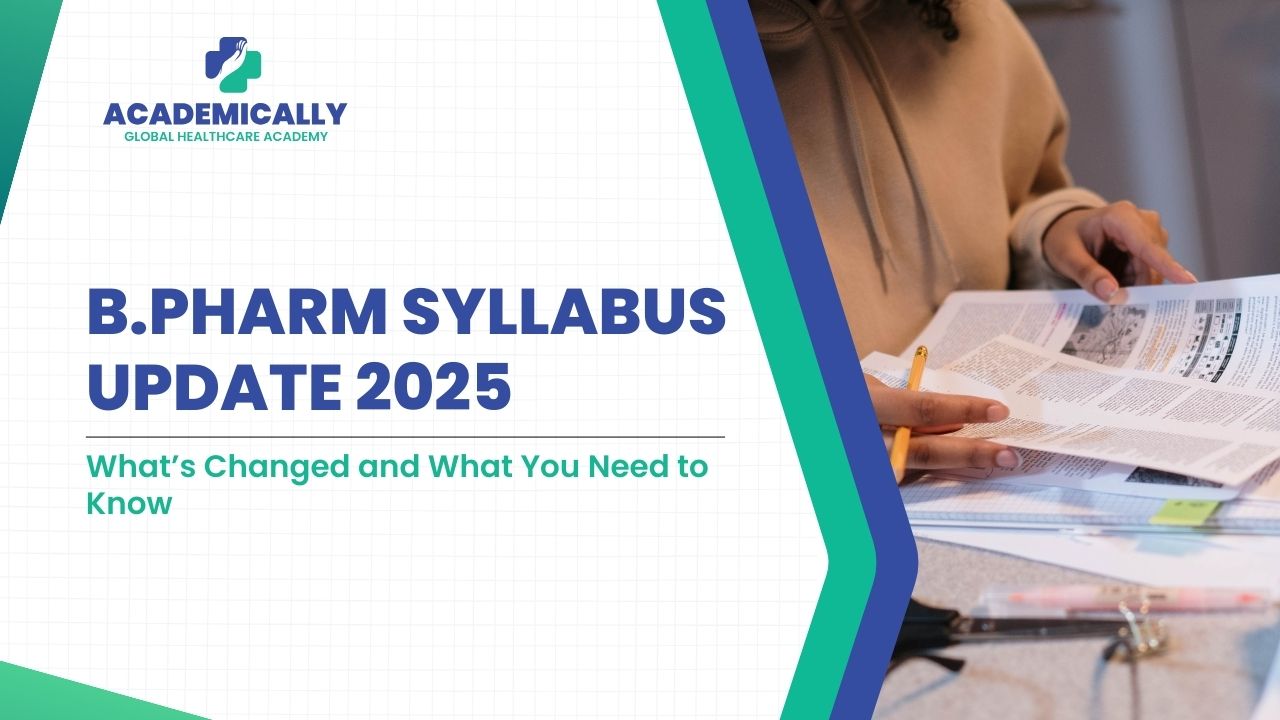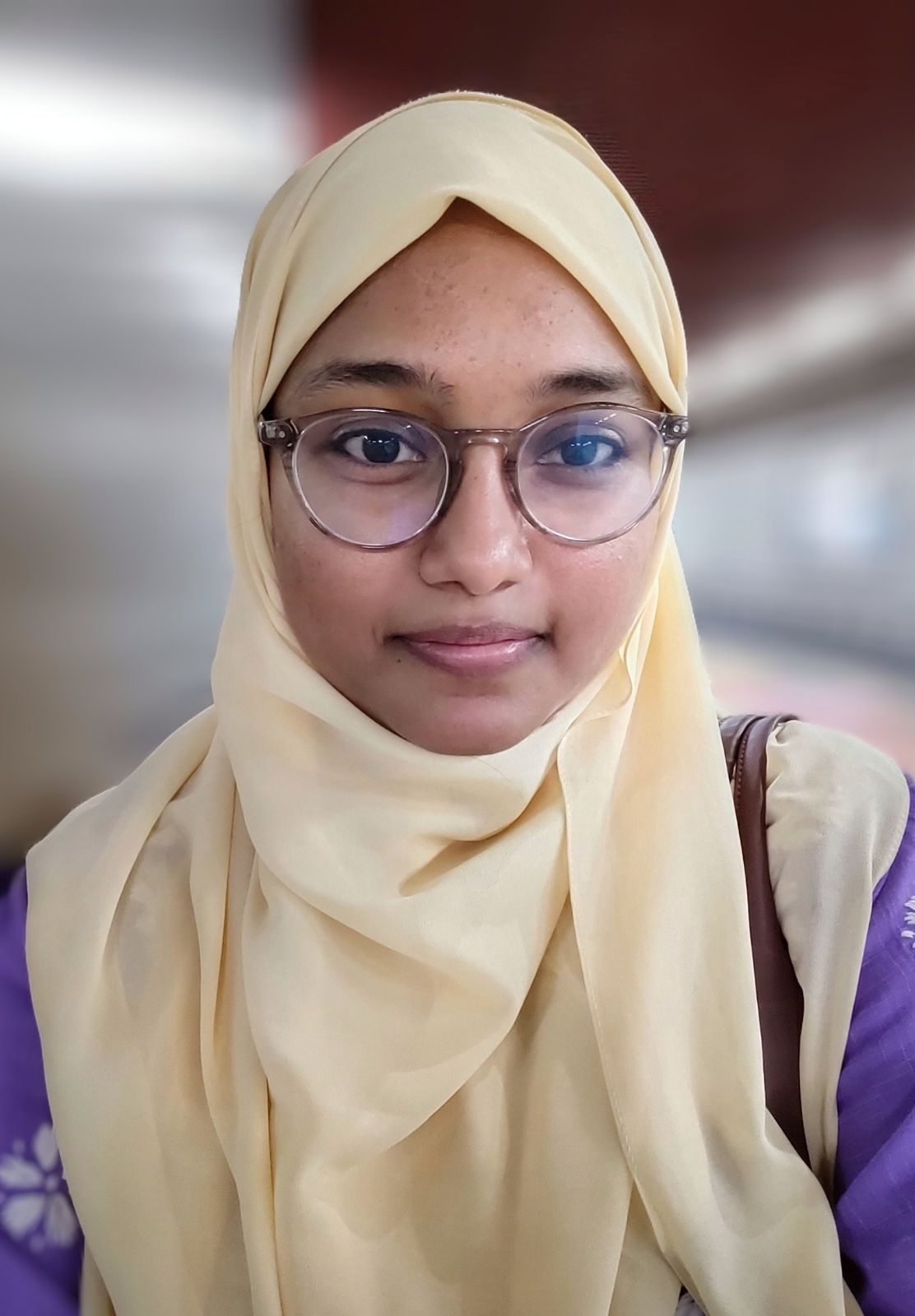The world of pharmacy and medicine is changing rapidly. Pharmacy education in India is evolving to match the pace of global pharmacy education.
To keep up with the changes, the Pharmacy Council of India (PCI) has done a major rehaul in the B.Pharm syllabus.
After more than 10 years, the B.Pharm syllabus in India is getting a major update.
From integrating Artificial Intelligence to introducing electives and internships, the syllabus has been altered to be more holistic.
If you’re a student or a teacher, and wondering what this new change will bring, this blog is for you.
Let’s get into all the details of the PCI-suggested B.Pharm syllabus for 2026.
Bachelor of Pharmacy in India
The B.Pharm course in India is one of the most sought-after science courses for students who plan on entering the healthcare sector. India is a major hub of medicine globally. It is no surprise that many Indian students gravitate towards B.Pharm after their 12th.
Although the B.Pharm syllabus is constantly evolving with changes in the field, up until now, it has been a majorly theory-heavy discipline.
B.Pharm- A Snapshot
| Aspect | Details |
| Duration | 4 years (8 semesters) |
| Eligibility | 10+2 (Physics, Chemistry, Biology/Mathematics) Minimum 50% marks |
| Core Subjects | Pharmaceutics Pharmaceutical Chemistry Pharmacology Pharmacognosy Pharmaceutical Analysis |
| Other Subjects | Pathophysiology Pharmaceutical Jurisprudence Biochemistry Microbiology Biotechnology |
| Mode of Learning | Classroom teaching Laboratory practical Projects and viva-voice Industrial or hospital training |
| Internship | Usually short-term industrial training (4–6 weeks). Not mandatory |
| Assessment | Internal exams-20–30% University/PCI exams- 70–80% |
| Credit System | Not followed |
| Exit Options | No early exit. Degree only awarded after 4 years. |
| Specialisation | None |
| Regulatory Body | Pharmacy Council of India (PCI) |
A Much-Needed Update
It has been 10 years since the B.Pharm syllabus was last updated, in 2014. Since then, the world of medicine has undergone dramatic changes:
- The COVID-19 pandemic highlighted the importance of pharmacists in healthcare.
- Artificial Intelligence and robotics are everywhere. They are reshaping drug discovery and patient care. And so is precision medicine and customised therapy.
- India is fast becoming the “Pharmacy of the World”. We need globally competent graduates to keep the title.
- Employers have been calling for graduates with not just theoretical knowledge, but hands-on skills, problem-solving ability, and adaptability.
The new syllabus is PCI’s answer to these challenges.
What Has Changed- Salient Feature
This revamp will make the B.Pharm degree well-rounded and flexible. Here are some of the key features of the new syllabus:
- Program Duration: 4 years (unchanged).
- Credits: 191 credits, across 8 semesters.
- Flexibility: Students can choose electives. Value-added courses and MOOCs (online courses) are also introduced.
- Specializations: From the 5th semester onward, students can branch into one of two exciting tracks
| Industrial Pharmacy | Clinical Pharmacy |
|
|
- Internships: Two mandatory internships have been introduced. One in an industrial setup and another in a clinical setting.
- Research: A two-semester-long research project has been introduced. The goal is to promote innovation and analytical thinking.
- Skill Development: Modules in entrepreneurship and communication, healthcare psychology, and professional soft skills.
- Multiple Entry/Exit:
- Exit after 2 years - Diploma in Pharmacy Practice / Pharmaceutical Sciences.
- Exit after 3 years - Advanced Diploma.
- Completion of 4 years - B.Pharm degree.
- Technology Integration:
- Artificial Intelligence
- Machine Learning
- Blockchain
- Robotic pharmacy
- Digital health
- Precision Medicine
- Faculty Development: Mandatory training before rollout.
Technology and Innovation in the Syllabus
One of the most exciting aspects of the new syllabus is its technology focus. For the first time, B.Pharm students will learn:
- AI & Python Programming for pharmaceutical applications.
- Machine Learning in drug discovery, safety analysis, and quality assurance.
- Novel Drug Delivery Systems (NDDS) and precision medicine.
- Modern analytical techniques and intelligent manufacturing systems.
This is a game-changer. Instead of just memorizing, students will also learn about data science and digital tools. This knowledge is necessary in the real world of drug discovery and patient safety.
Student-Centric Approach
The Choice-Based Credit System or CBCS, brings flexibility to the program. Now, students can:
- Select electives based on their career goals
- Take online courses (MOOCs) and earn credits.
- Explore courses like environmental studies or digital literacy.
This will not only help students personalize their degree but also learn about things that actually interest them.
Real-World Training
The new B.Pharm program isn’t just about classroom lectures. It’s designed to give students real-world exposure.
- Two internships ensure you enter the workforce with practical skills.
- A research project in the final year trains you in
- Innovation
- Scientific writing
- Problem-solving
- Practical labs and simulations will help build confidence in
- Patient counselling
- Ethics, and
- Healthcare communication
This aim is to bridge the gap between theory and practice. This was one of the biggest criticisms of the older syllabus.
New subjects have also been introduced for this.
- Industrial Pharmacy and Facility Design
- Intellectual Property Rights
- Regulatory Affairs
- Healthcare Psychology and Communication Skills
- Ethics and Universal Human Values
- Social Pharmacy and Public Health
- Innovation and Startup Ecosystem
- Pharmaceutical Marketing Skills
What This Means for Students
If you’re planning to enrol in B.Pharm from 2026 onwards, here’s what you can expect:
- You’ll graduate with skills that go beyond traditional pharmacy. You’ll learn about coding in Python to counselling patients.
- You could explore multiple career options, like:
- Industrial roles
- Clinical Research
- AI-driven drug discovery
- Regulatory affairs
- Entrepreneurship
- Healthcare startups
- You’ll be better prepared for competitive exams like
- And global licensing exams like
- NAPLEX (US) - FPGEE and NAPLEX Exam Preparation Course
- OPRA (Australia) - OPRA Exam Preparation Course With AI Grand Test
- PEBC (Canada) - PEBC Exam Course for Pharmacist in Canada | Academically
- DHA (Dubai)- DHA Exam Preparation Course for Pharmacists
- PSI (Ireland)- PSI Pharmacy Equivalence Exam (TCQR)
- NPQE (Qatar)- National Pharmacist Qualifying Exam (NPQE) Preparation Course
- Your degree will be more globally relevant, improving employability abroad.
Implementation Timeline
Here’s how things are expected to roll out:
- Draft released: July 2025
- Public comments open until: September 20, 2025
- Faculty training programs: PCI will train 500 educators per month across India.
- Implementation Starts: Academic session 2026–27
So if you’re enrolling in B.Pharm in 2025, you’ll likely be the last batch under the old syllabus. From 2026 onwards, the new curriculum will kick in.
Comparison with the Old Syllabus
Here is a quick comparison of the old and new syllabi.
| Aspect | Old Syllabus (2014/16) | New Draft (2025) |
| Duration | 4 years 8 semesters | 4 years 8 semesters (same) |
| Structure | Fixed subjects all 8 semesters | Core subjects in first 4 semesters Specialisation from the 5th semester |
| Credits | Non-credit system | Credit-based (191 credits) |
| Flexibility | None. All subjects are compulsory | 20% electives + inter-disciplinary choice |
| Entry/Exit | No exit until completion of 4 years | Multiple entry-exit with certificate/diploma options |
| Tech Integration | Absent (traditional pharma subjects only) | AI, blockchain, digital pharmacy, bioinformatics |
| MOOCs/Online | Not allowed | Recognised via SWAYAM/online platforms |
| Specialisation | None – generalised B.Pharm | Choice of Industrial or Clinical pharmacy |
| Faculty Training | Standard orientation only | Nationwide structured training programs for teachers |
The Dawn of a New Pharmacy Education in India
The B.Pharm syllabus 2025 draft is more than just an academic update. It’s a blueprint for the future of pharmacy education in India. It blends
Science with Technology
Theory with Practice
Healthcare with Innovation
For students, this means more choices and more opportunities. For India, it means a workforce ready to lead the global pharmaceutical industry.
The future of pharmacy education is being written right now. And your voice matters.





